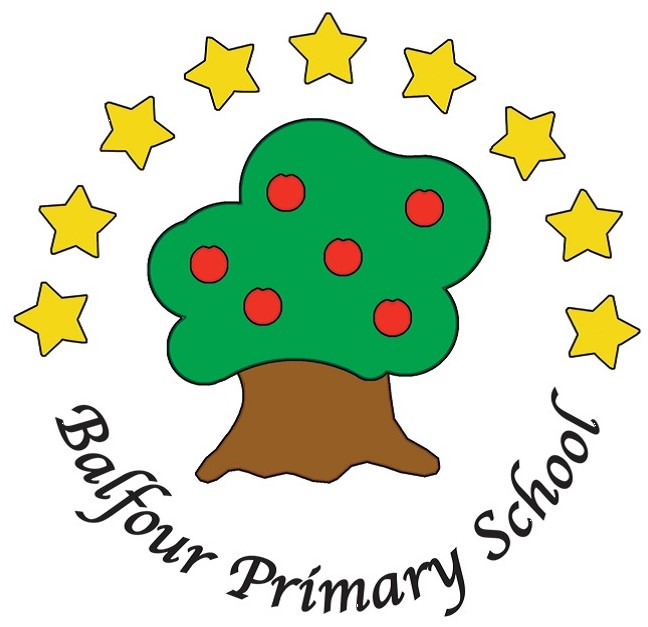Personal development
At Balfour Primary School, we pride ourselves on a whole school approach to promoting the spiritual, moral, cultural, mental and physical developments of our pupils. Recent studies show that education and health are very closely linked. So promoting the health and wellbeing of all pupils within school, has the potential to improve their educational outcomes, along with preparing them for the opportunities, responsibilities and experiences of later life.

Cultural Capital
What is Cultural Capital?
Cultural capital is the accumulation of knowledge, behaviours, and skills that a child can draw upon and which demonstrates their cultural awareness, knowledge and competence; it is one of the key elements a child will draw upon to be successful in society, their career and the world of work.
Cultural capital promotes social mobility and success.
Cultural capital gives a child power and choices. It helps them achieve goals, become successful, and rise up the social ladder without necessarily having wealth or financial capital.
Cultural capital is having attributes that give children the desire to aspire and achieve social mobility whatever their starting point.
Rationale
At Balfour, we recognise that for children to aspire and be successful academically and in the wider areas of their lives, they need to be given rich and sustained opportunities to develop their cultural capital.
The school recognises that there are six key areas of development that are interrelated and cumulatively contribute to the sum of a child’s cultural capital:
- Personal Development
- Social Development, including political and current affairs awareness
- Physical Development
- Spiritual Development
- Moral Development
- Cultural development
Summary of the key areas of coverage for each area of Cultural Capital Development:
Personal development
- Personal, Social, Citizenship and Health Education provision;
- Pupil Led Cubs (KS2);
- The school’s wider pastoral framework;
- Growth mindset support – resilience development strategies;
- Transition support;
- Work to develop confidence e.g. role play, supporting peers;
- Activities focused on building self-esteem;
- Mental Health & well-being provision.
- Career’s Education.
Social Development
- Personal, Social and Health Education provision;
- Social Responsibility Curriculum;
- Volunteering and charitable work – eg. raising funds for NSPCC; choir singing at Christmas for elderly in a local residential home
- Pupil Voice –Pupil Parliament (Community, Eco and Learning MPs) Play Leaders (KS2), House Captains Year 2/Year 6);
- Inclusion Team (Learning Mentors);
- Provisions linked to the school’s accreditation of the Rights Respecting School and Green Flag Award.
- Pastoral support from all staff
Physical Development
- The Physical Education curriculum;
- Healthy Eating policies and catering provision;
- Anti-bullying and safeguarding policies and strategies, including the child-friendly poster
- The Health Education dimension of the PSHE curriculum, including strands on healthy eating, drugs, smoking and alcohol;
- The extra-curricular clubs related to sports and well-being;
- The celebration of sporting achievement;
- Activity-based educational visits;
- Design and Technology units related to food preparation and nutrition;
- Opportunities to participate in community events eg Dance at the Dome and other sporting events;
Spiritual Development
- The Religious Education Curriculum;
- Our collective acts of reflection (including assemblies);
- Support for the expression of individual faiths;
- Inter-faith and faith-specific activities and speakers;
- Visits to religious buildings and centres;
Moral Development
- Assemblies to promote school values, human rights, global issues and special festivals and culturally important events.
- The Religious Education Curriculum;
- The school’s Behaviour Policy (values and human rights ethos);
- Contributions to local, national and international charitable projects.
Cultural Development
- Citizenship education through PSHE;
- Arts education including Music and Drama;
- Access to the languages and cultures of other countries through the curriculum (both Foundation and Core subjects);
- Promotion of racial equality and community cohesion through the school’s ethos, informing all policy and practice.
Each curriculum area makes its own contribution to children’s cultural capital development and supports SMSC across the school.
